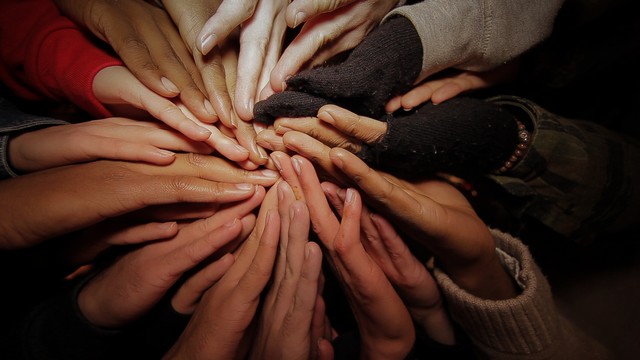By Chandra Muzaffar
In the last 10 years or so, a lot of community based, civil society inspired, people initiated, national unity endeavours have come to the fore. The Unity Walk scheduled for 14 August is one such effort. It is commendable that many more Malaysians today, compared to the past, see national unity as a goal that they should strive to achieve — regardless of what the State is doing or not doing.
Unfortunately, the good work that citizens have embarked upon does not address directly some of the fundamental challenges facing the nation as it struggles to forge national unity. What are these challenges?
One, ethnic grievances that arise from inter-personal encounters at the street-level. If a shop-keeper from one community is perceived to have cheated a customer from another community and if that perception is shared by a sizeable segment of his community, it will have a negative impact upon ethnic relations. Similarly, if a civil servant from a certain community responds to a member of the public from another community in a rude manner, and if there is a general feeling that this is a pattern, inter-ethnic ties will remain at a low ebb.
Two, decisions emanating from policies or practices that are perceived as ethnically biased. If individuals from specific ethnic backgrounds are finding it more difficult to gain promotions in various branches of the public services, it will not conduce towards ethnic harmony in the larger society. By the same token, if qualified workers whose ethnic and religious affiliation differ from that of the top brass in a private corporation are excluded from positions of power and authority, it will generate communal unhappiness that will permeate the entire social fabric.
Three, while many professions and commercial and industrial enterprises have become multi-ethnic compared to the situation four decades ago, non-formal interaction within the work-place is still along ethnic lines. This in itself is not a major problem but it does sometimes spawn communal attitudes which are inimical to building inter-ethnic understanding and empathy.
Four, it is partly because ethnic sentiments and perceptions are pervasive, that justice is often viewed from a one-sided perspective with very little appreciation of how the ethnic other sees the situation. This is why even well-meaning advocates of national unity when they catalogue legitimate injustices give the impression that they are not sensitive to what the other regards as the wrongs done to his kind.
Five, this is related in a sense to a deeper and more fundamental challenge — the challenge of how we perceive the nation and its identity. There is no shared vision of what this nation is and what it should be, a vision which transcends the ethnic and religious boundaries within the nation-state. Instead of moving towards a more inclusive Malaysian identity we have become more and more segmented into exclusive ethnic and religious identities which from time to time generate tension and friction.
Some suggestions on how we can overcome these five challenges have been put forward in the past.
One, grassroots ethnic grievances are perhaps best resolved through community relations councils operating within urban and rural localities. Rukun Tetangga outfits established in the early seventies could have evolved into effective community-level platforms for bringing ethnic and religious groups together to solve routine disputes and misunderstandings — tasks which the Police undertake today without much fanfare. If the community can also be involved, we may be able to create a genuine grassroots people’s movement committed to inter-ethnic and inter-religious harmony.
Two, as far as policies and practices with an ethnic bias are concerned, the time has come for all of us to de-emphasise ethnicity and accord greater importance to the needs of the poor and disadvantaged whoever they are, and, at the same time, to recognise and reward ability and excellence, as vital attributes for the success of any society. It is only certain vested interests that have always manipulated ethnic and religious sentiments for their own benefit that would be unhappy with this approach whose value our policy-makers and planners are cognisant of.
Three, exclusive ethnic bonding and communal attitudes can be combatted through organised attempts at encouraging interaction and raising awareness of shared values that cut across ethnic and religious boundaries. In the work-place in particular, good work ethics and professional standards should be inculcated among workers and management so that they become the shared value system of all Malaysians. Specifically, discipline and integrity — work ethics par excellence — should be prioritised.
Four, through education and awareness programmes, biased perspectives on issues of justice can be overcome. The media has a critical role to play in this. It should have the courage to expose the stark and subtle biases in the expressions of justice which appear in the media. By so doing, it would help nurture a more holistic and balanced view of justice among all communities.
Five, this would pave the way for a genuinely holistic, inclusive perspective on the nation’s identity. The equilibrium embodied in the Malaysian Constitution which is captured in the inclusive principles and goals of the Rukunegara and in the all-embracing strategic challenges of Wawasan 2020 tell us in no uncertain terms what the nation’s identity is. It is this inclusive, all-embracing identity that we should celebrate — especially since we are now being challenged by a certain interpretation of Islam which seeks to divide rather than unite Malaysians.
Instead of waiting for the State to act, shouldn’t concerned Malaysian citizens initiate on their own some of these solutions to national unity?
Dr. Chandra Muzaffar is the Chairman of the Board of Trustees of Yayasan 1Malaysia.
Petaling Jaya.
9 August 2016.

